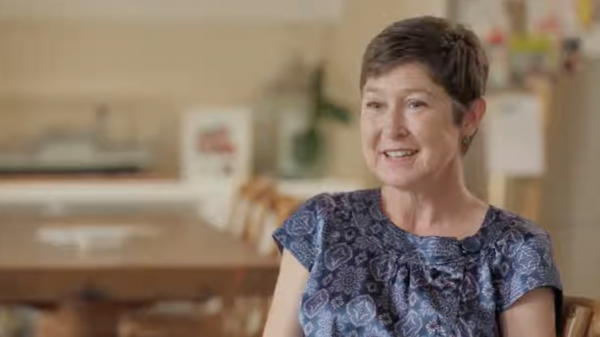Centre of the team
View transcript
Centre of the Team
Assoc. Professor Peter Youssef
Rheumatologist
The patient will be working with their doctors. They may also be working with physiotherapists. They may be working with dietitians. Family members are also important and initially patients may require support from family members until their disease is controlled. Patients may also be working with psychologists; if they are seeing a psychologist it is important that all team members work together and that the patient keeps all of the team appraised of what’s happening.
Ray Paulley
(Psoriatic Arthritis)
You have got to be responsible for these things yourself. The system is not that good.
Dr. Mona Marabani
Rheumatologist
In the old days where most rheumatology took place in public hospitals this was pretty easy because everybody was in the same place and it’s more of a challenge now because mostly rheumatology care takes place outside of hospitals so that accessing all of those extra services is a bit of a challenge. But it’s definitely one worth pursuing and one that I discuss always with patients because there’s a lot of benefit that can be gained by using the team approach.
Ray Paulley
(Psoriatic Arthritis)
So you’d like to think you’ve got the hub which is the GP and the spokes which are the specialists and the hub’s the one presumably that’s doing all the coordinating but it’s not the case at all. The hub’s the patient and you’re doing the coordinating.
Wendy Favorito
Former consumer Director Arthritis Australia (rheumatoid arthritis)
So you’re looking at a number of different really important people to manage all of the different aspects of this disease and I think they’re all important and then I think the patient is really at the centre of it because it’s about helping us in managing our condition. I sometimes I regard myself almost as a case manager; I feel that with that many different people caring for me, someone needs to be right across all of the issues and I think at the end of the day that falls upon the patient to do that and I think that’s a positive thing. I want to know what’s happening to me. I want to know what’s going on. I want to feel like I’m contributing and in a sense controlling as much as I can, what’s going on. I want to have full knowledge of what it is that’s happening to me and to my body, and so I think that the patient really I guess is like the captain of the team really; that they know what all the players are doing and that they shouldn’t be shy to speak up and say what about this and what about that and to be really actively involved in the process of healthcare delivery.
Linda Bradbury
Nurse Practitioner, Rheumatology
It’s really important that you take control of your disease. It’s your body. It’s your life. You can work out exactly what you need for your disease. There are many people out there that can help you but you need to take control of this and work out who the best people are that can help you.












